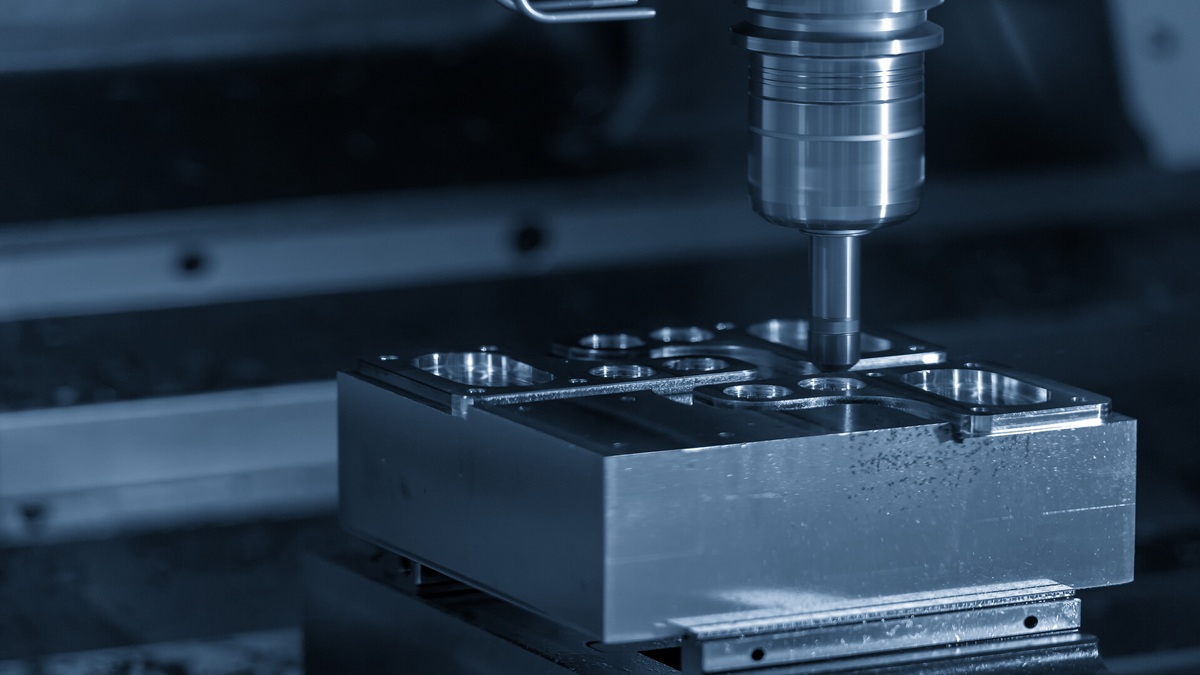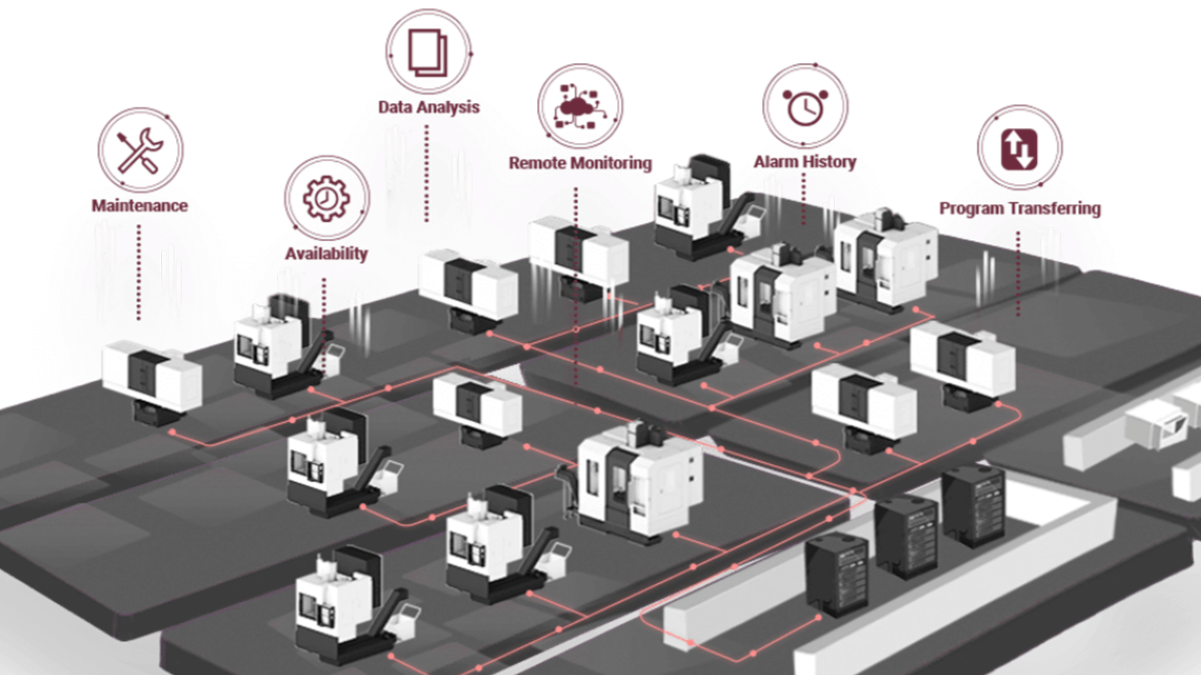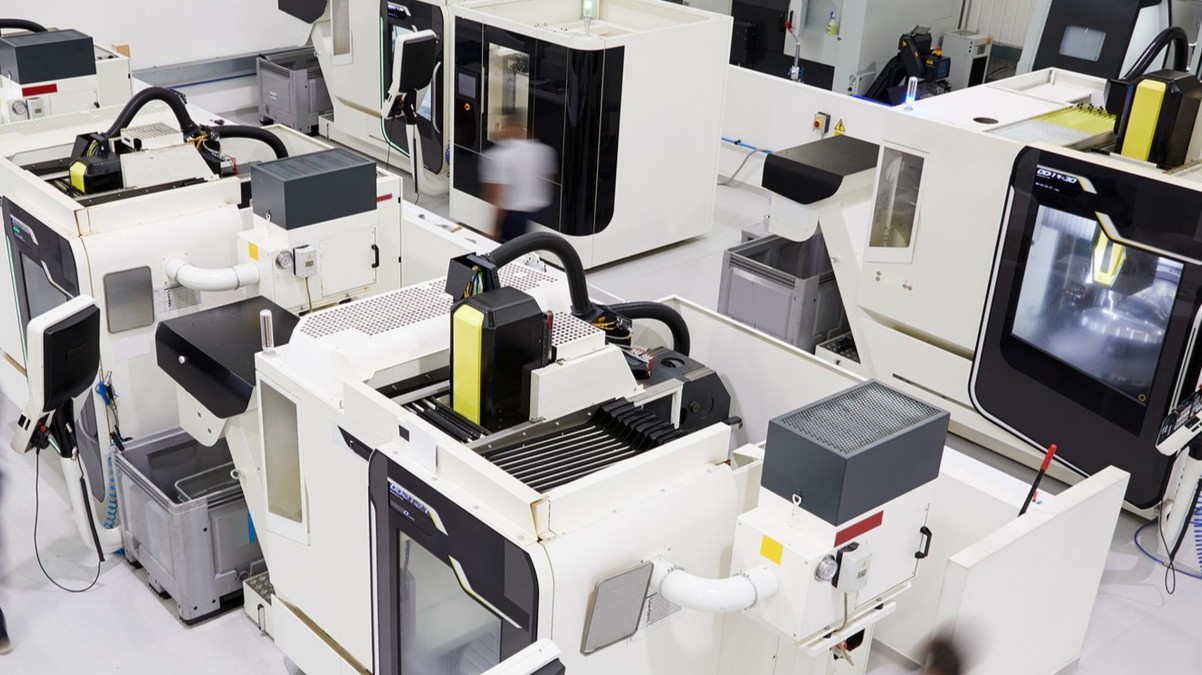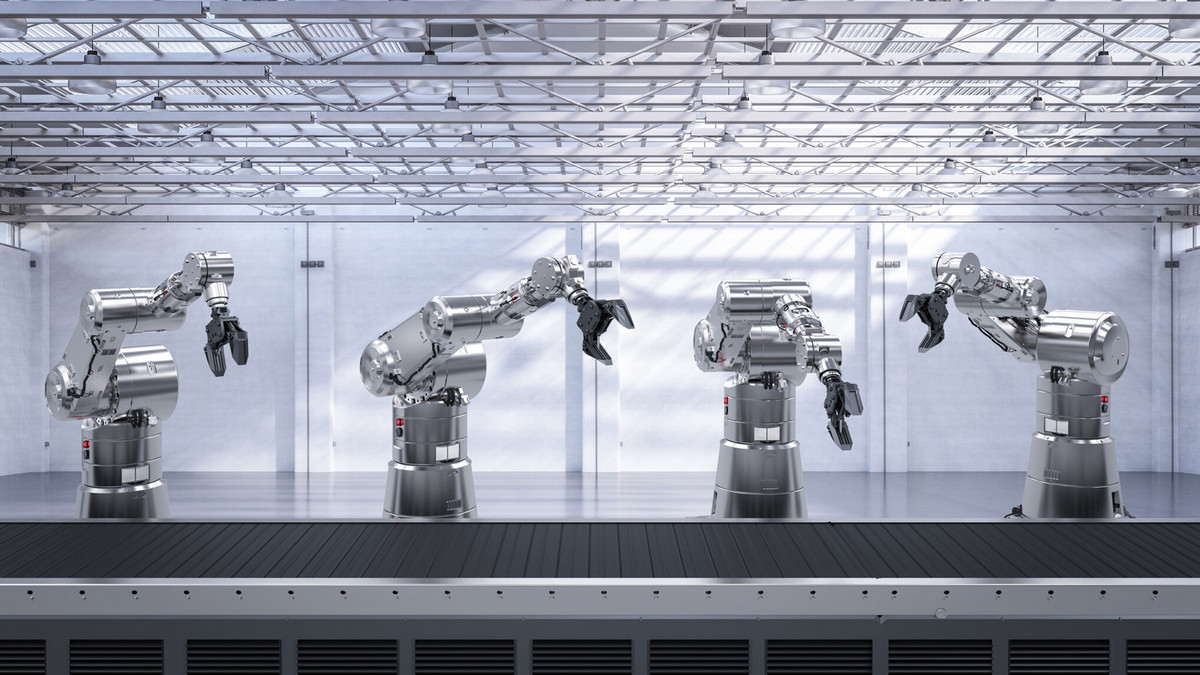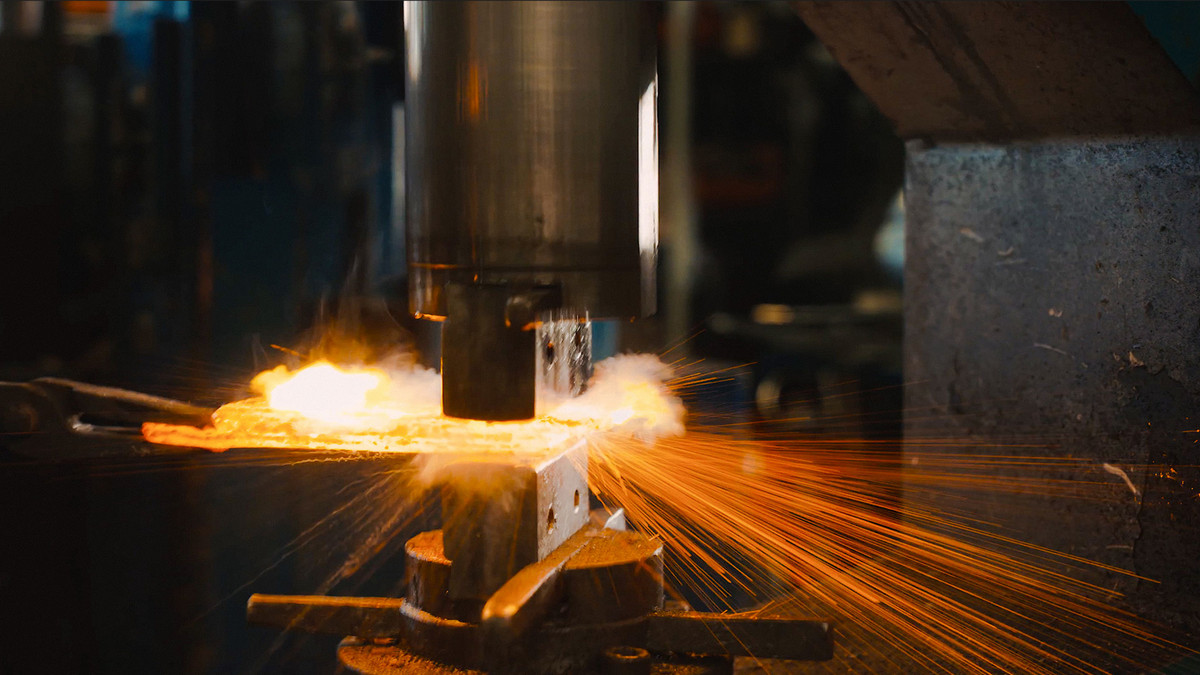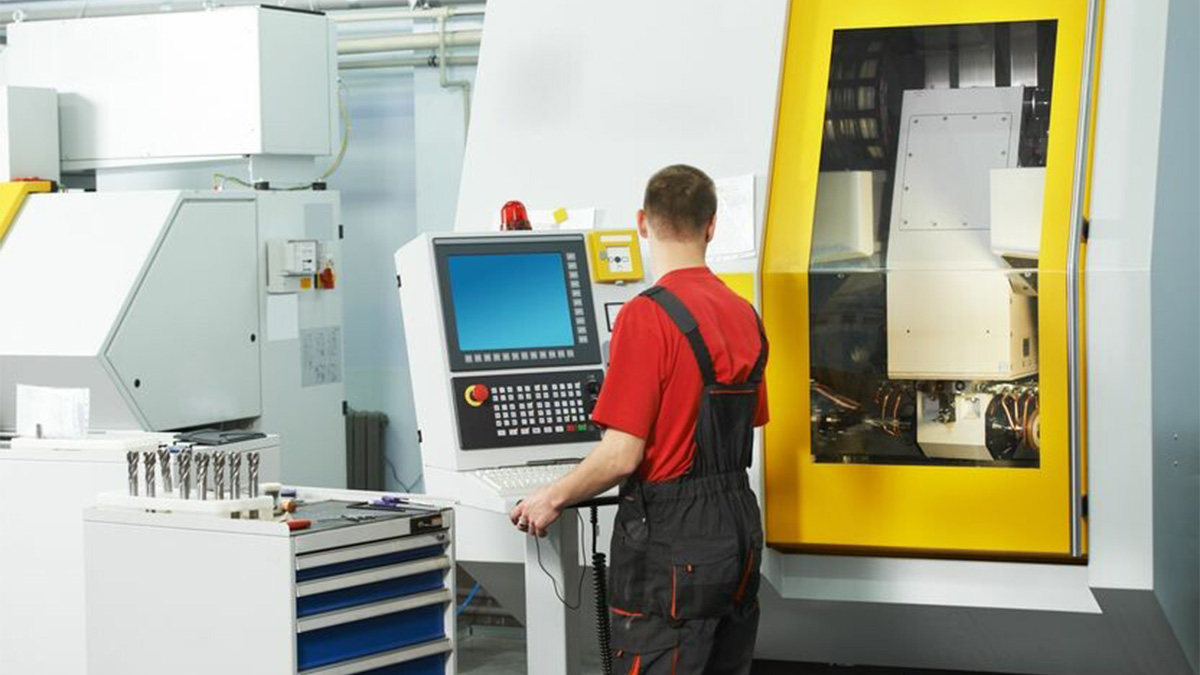- Showing results for
- Industrial Digitalization
In 2025, as global manufacturing continues its rapid digital transformation, the machine tool industry is facing significant change. International buyers in aerospace, electric vehicles, and high-end electronics are increasingly prioritizing smart services and data applications over mere machining precision. Taiwan's machine tool industry is actively integrating the Internet of Things (IoT), artificial intelligence, and big data technology, expanding from traditional hardware manufacturing into the smart solutions sector. This move helps global manufacturing clients boost production efficiency and enhance equipment maintenance management. This article will delve into how Taiwan's machine tool industry is becoming an indispensable smart partner for global manufacturing, delivering sustained value.
2025-08-27 14:56:00
The manufacturing world is in the midst of a digital revolution. As Industry 4.0 rapidly evolves, factories are transforming from traditional workshops into interconnected, intelligent ecosystems. This shift is not just about adopting new technology; it's about fundamentally changing how we produce goods. Leading the charge are smart machine tools, which are moving beyond simple automation to become autonomous, data-driven assets. This is where companies like CHEVALIER are making their mark, bridging the gap between hardware excellence and digital innovation to redefine the factory of the future.
2025-08-21 16:03:05
The traditional manufacturing industry relied on skilled artisans manually operating lathes, meticulously shaping perfect components with hand tools. However, as times have rapidly changed, lathes have evolved from manual machines into automated equipment. Now, instead of manual carving, engineers can produce parts simply by inputting a program. The emergence of big data, AI, and the Internet of Things (IoT) has brought another wave of impact to the industry, signaling that a new manufacturing revolution is on the horizon.
2025-08-08 10:28:10
In the current wave of global manufacturing transformation, digitalization and connectivity have become the core drivers propelling the machine tool industry toward smart factories. This goes beyond merely connecting traditional equipment to networks; it involves leveraging data collection, analysis, and application to achieve comprehensive optimization of production processes, enhanced efficiency, and flexible manufacturing. From single-machine intelligence to production line collaboration, digitalized and connected technologies are rapidly transforming the design, manufacturing, operation, and maintenance of machine tools.
2025-08-08 09:15:57
New technologies bring forth the new. AI and the cloud are irreversible trends that are strengthening the competitiveness of enterprises. Enterprises should consider how to implement AI and the cloud in each application of the enterprises.
2023-03-24 10:01:27
Industrial robot system integrators are located at the downstream application end of the robot industry chain, providing application solutions to end customers. It is responsible for the secondary development of industrial robot applications and the integration of peripheral automation equipment and is an important part of industrial robot automation applications.
2022-12-05 14:06:13
The shortened product life cycle, low-volume variety, and customization have become mainstream. Quick response and flexible adjustment are the keys to the competitiveness of the manufacturing industry. Rapid trial production has become an international research project to win orders and reduce development risks.
2022-12-02 16:29:45
The demand for renewable energy is increasing day by day. Facing the instability of wind energy and solar energy, energy digitization can increase the productivity and availability of green electricity, such as using algorithms and blockchain technology to reduce consumption and improve flexibility.
2022-11-14 10:15:13
How to make good use of digital technology to analyze, formulate strategies, and respond quickly at the core of enterprise operations has become the key to development.
2022-10-24 10:18:50
Digital Image Processing is a method and technology for removing noise, enhancing, restoring, segmenting, and extracting features through a computer.
2022-09-23 13:07:56
The vision of the Internet of Things is to make everyone's life better, safer, and more convenient. To achieve this goal, we must first increase the speed of data processing, generate real-time intelligence, and allow IoT data to make informed decisions in seconds.
2022-07-26 10:03:21
The Metaverse is bringing virtual gamers to a wireless sci-fi vision with an infinite number of virtual worlds. However, you will find some transformation and benefits in how manufacturers can be more productive in the digital and physical worlds.
2022-05-24 10:13:22
Germany is the second-largest producer of machine tools in the world, after China. Advanced German machine tool technology has led the development of the machine tool market.
2022-05-16 16:41:57
Smart manufacturing utilizes advanced manufacturing technology and provides solutions through AI, the Internet of Things, big data, cloud, edge computing, and other technologies to substitute the production process with an intelligent manufacturing model and customize products according to customer needs.
2022-04-12 13:09:50
The low-code development environment allows users with less technical knowledge to build entire business applications on their own without the assistance of IT staff.
2022-03-24 13:13:58
DevOps is an evolving philosophy and architecture designed to encourage faster and better application development and faster release of new or revised software features or products to customers.
2022-03-23 16:45:11
With increasingly complex IT architecture exacerbating maintenance and operation challenges, the demand for IT agility is driving the growth of the AIOps market.
2022-03-23 13:49:05
AIOps uses artificial intelligence to simplify IT job management and accelerate and automate problem resolution in complex, modern IT environments.
2022-03-23 10:26:48
Edge computing will grow in importance as manufacturers see the development of the Industrial Internet of Things (IIoT). The interconnected factory, designed for manufacturing automation, will become an essential corporate goal.
2022-03-17 17:09:37
Amazon Web Services, Microsoft Azure, and Google Cloud account for 80% of the global cloud market. Which one is right for your operations?
2022-03-07 13:20:59
Agree

